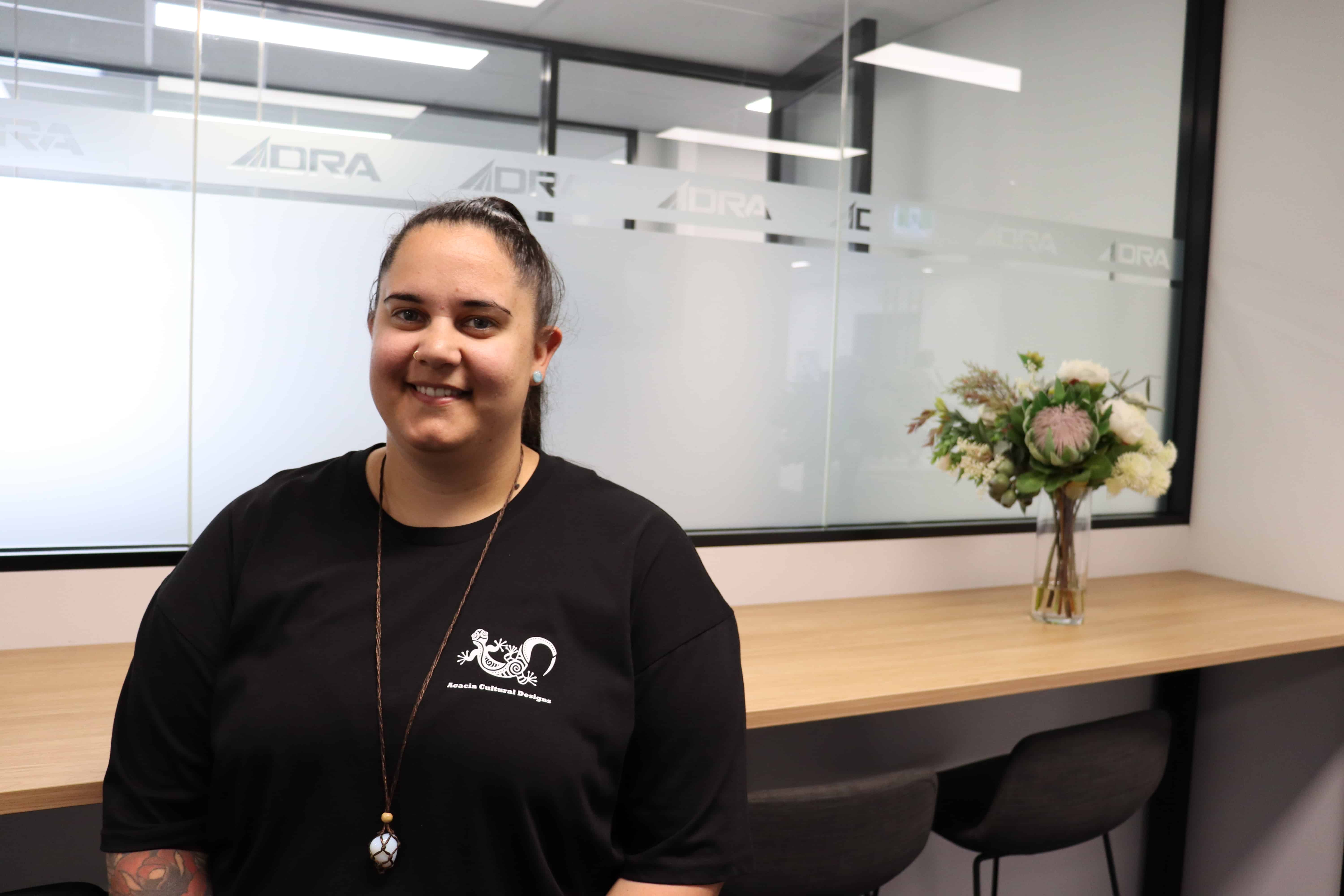Prioritising and destigmatising mental health has been high on the agenda for the better half of a decade. Particularly in the past two years, we have seen a real shift in the conversation in workplaces around what actions need to be taken to keep our people not only physically safe but mentally healthy.
That is why DRA has committed to sponsoring and participating in the 2022 Hawaiian Ride for Youth (HRFY) – one of Australia’s leading charity events and the largest fundraising event for Youth Focus.
When thinking about how we could promote this cause and the important reason behind why we’re supporting Youth Focus, we decided to use our bodies as billboards and take our message to the streets on our cycling kits.
We engaged local Perth artist, Acacia Collard, for the task. Acacia is a proud Badimia Yamatji Balladong Noongar woman, graphic artist, and mentor. Shortly after being commissioned by DRA to create a design for the HRFY cycling kit, Acacia came up with the ideas for “The Ripple Effect”.
“I pulled relevant statistics from a broad community perspective. Women, men, Indigenous, LGBTQ+, city, regional – I tried to represent as many groups as possible. The main theme, though, was the ripple effect. Suicide and mental health affect many people and not just those in immediate circles. Sadly, it’s something that the effects are lifelong. When a drop hits the pond, the water continues to ripple.”
Acacia used her lived experience with mental health and suicide to inspire her design.
“One of the first funerals I remember attending was for a cousin who passed away by suicide. Over the years, there have been many other – relatives and people I know – who have passed this way. Every time you’re left with the question, “Why?” So, the ripple effect is something I have lived and experienced firsthand.”


The story of “The Ripple Effect”:
The charity behind the ride, Youth Focus, has spent 27 years as a leading provider for Youth Mental Health in WA. Each year, Youth Focus supports more than 4,500 young people with free and uncapped face-to-face counselling from offices, schools, outreach locations, and headspace centres across WA.
The HRFY has been running for 20 years and has raised over $26 million in that time.
This year, over 200 riders will cycle 700kms from Albany to Perth, stopping at 20 schools along the way.
Youth Focus spokesperson, Addy Wetzler, said, “We’re thrilled to have DRA on board as a sponsor this year. It is so important to have good companies involved in the ride because we’re raising awareness as well as funds. Companies can get the word out to their teams, families, and networks about the work we do at Youth Focus and potentially help those in need.”
To support Youth Focus and assist DRA in our fundraising efforts, click here to donate or purchase a raffle ticket. Any contribution is welcomed and appreciated.
If you are struggling or having suicidal thoughts, please know help is available. Seek assistance by contacting a trusted healthcare professional or calling Lifeline on 13 11 14. If you are concerned for your safety or the safety of others, call Triple Zero (000).